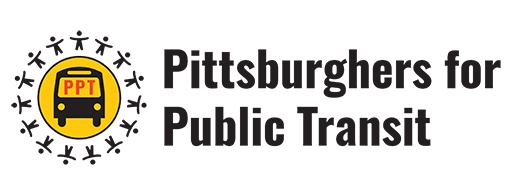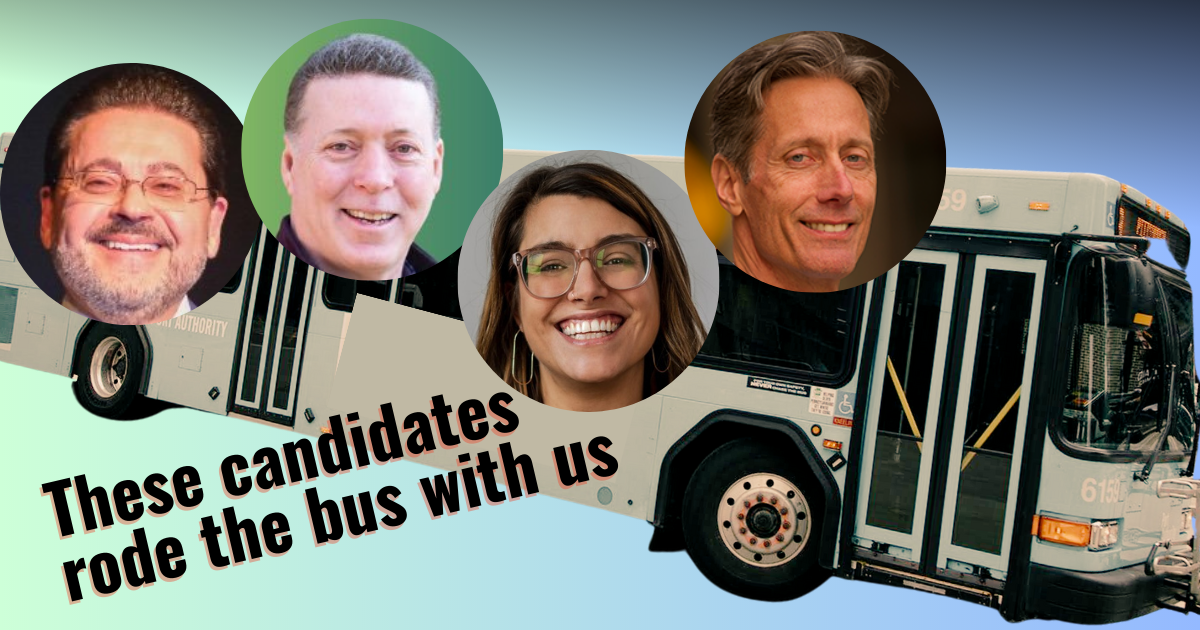
by Dan Yablonsky | Apr 10, 2023 | Uncategorized
image description: cutouts of the faces of John Weinstein, Michael Lamb, Sara Innamorato, and David Fawcett are superimposed over a Pittsburgh Regional Transit bus. The text reads “These candidates rode the bus with us”. Recently, a number of the...
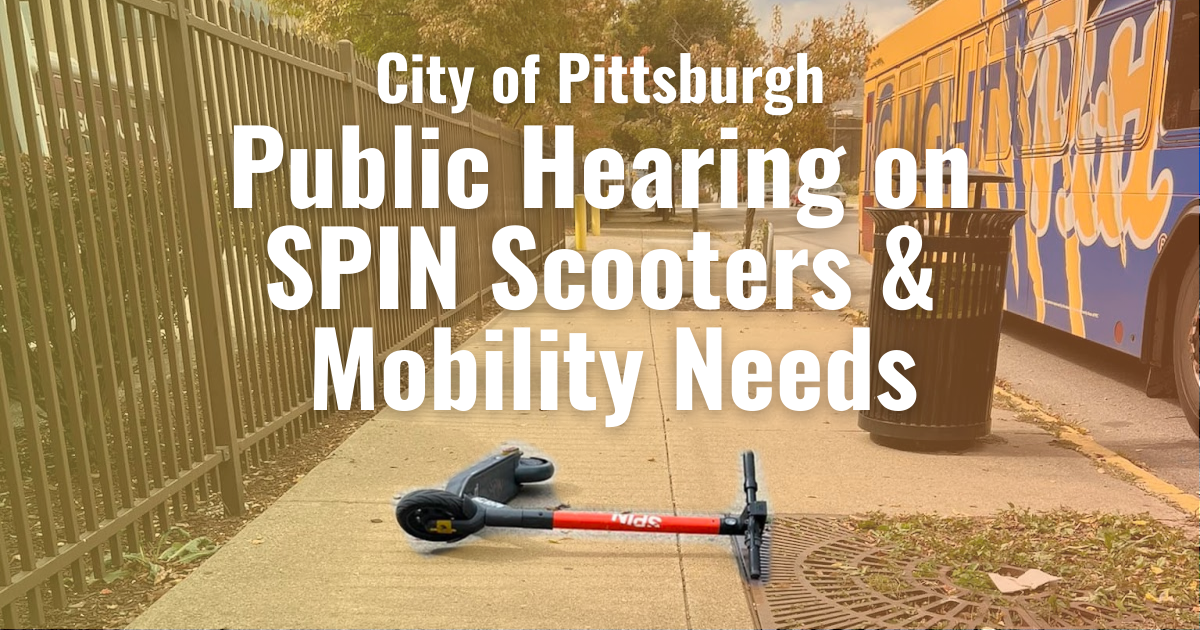
by Dan Yablonsky | Apr 7, 2023 | Uncategorized
image description: graphic that has text that reads “City of Pittsburgh Public Hearing on SPIN Scooters & Mobility Needs”, overlaid on a photo of a SPIN scooter laying across a sidewalk. The City of Pittsburgh is holding a Public Hearing about the SPIN...
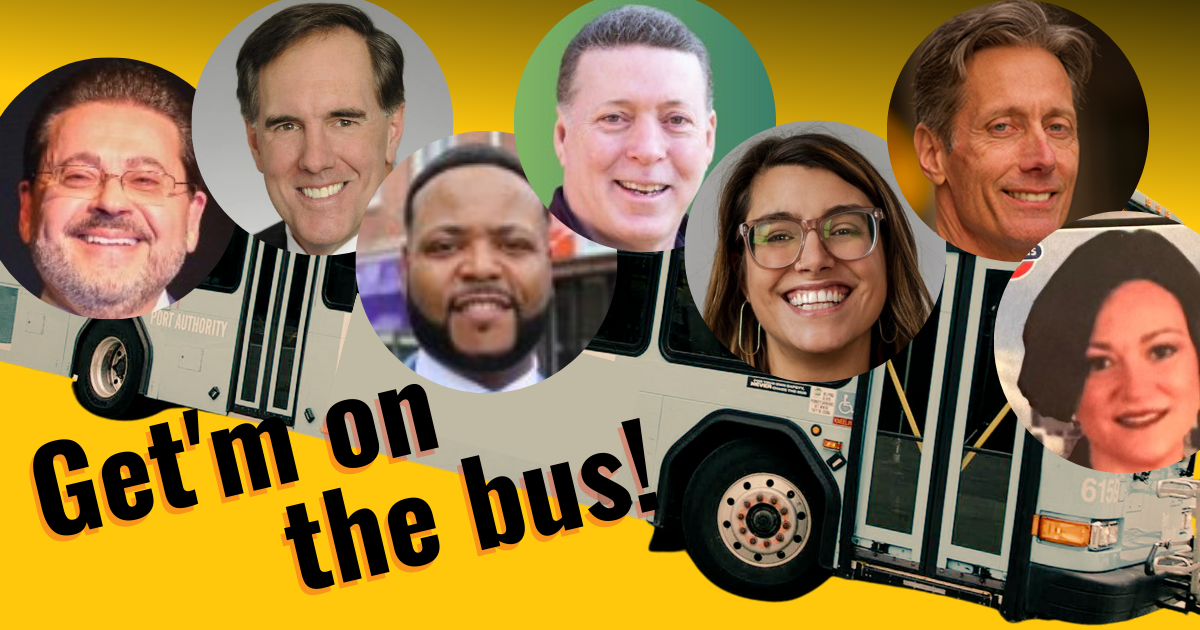
by Dan Yablonsky | Mar 24, 2023 | Uncategorized
PPT is inviting all of the candidates running for Allegheny County Executive for a ride-along with transit riders and workers. The Allegheny County Executive is the most powerful person in Southwestern PA when it comes to public transit. So it is CRITICAL that this...
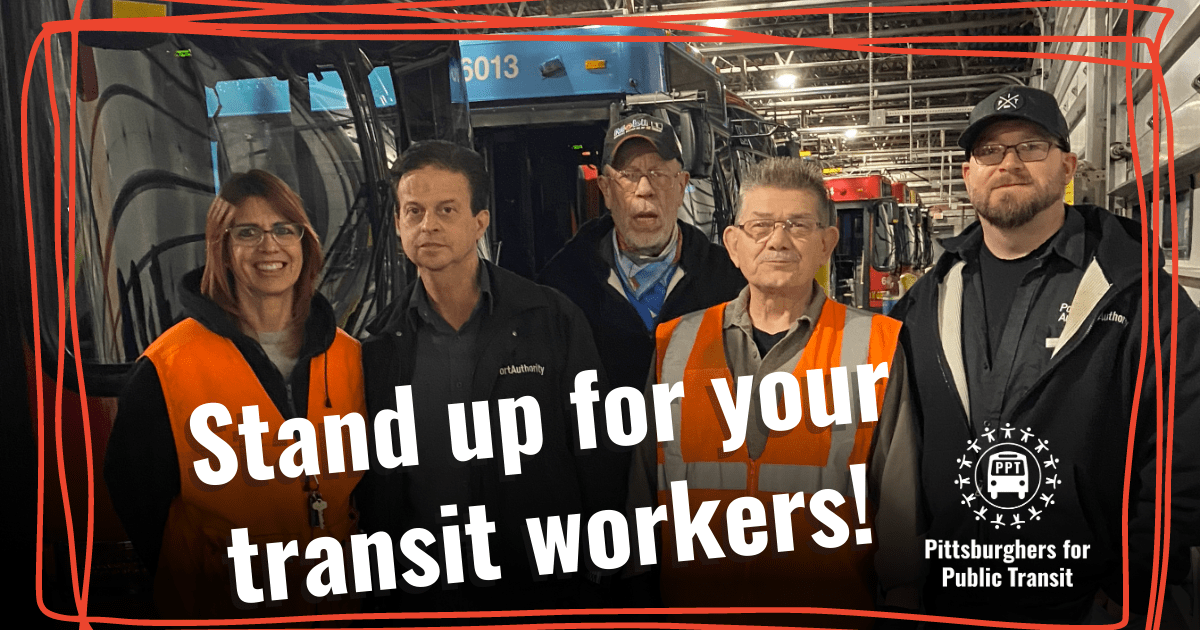
by Dan Yablonsky | Mar 14, 2023 | Uncategorized
Image Description: Photo of 5 PRT transit workers wearing their uniforms standing shoulder to shoulder in Ross Garage. Some are wearing orange safety vests. Photo was taken by PPT Board Member Sue. Without transit workers, we have no transit system. Our transit system...
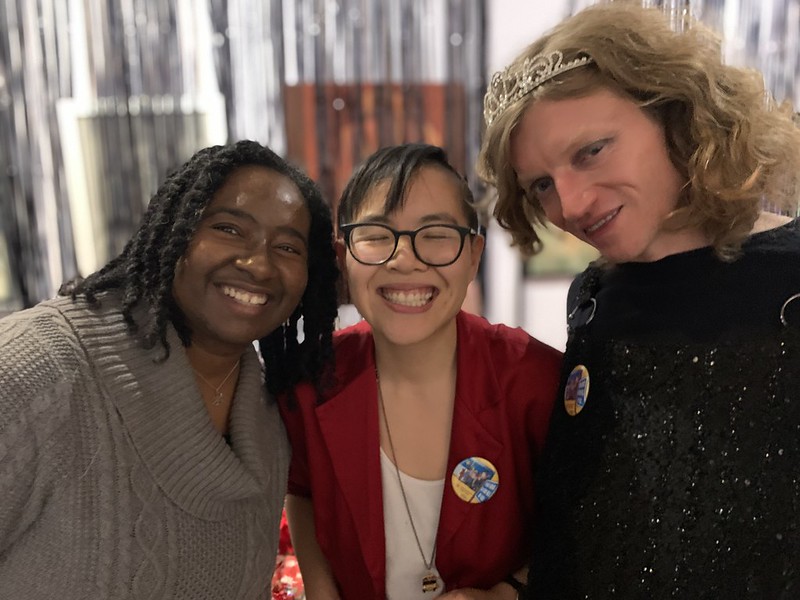
by Dan Yablonsky | Mar 3, 2023 | Uncategorized
Image Description: PPT Members Tiffany, Bonnie and Gabriel smile for a photo at the year-end membership party. Did you get into the new discount fare pilot program? We want to hear from you so we can advocate for a permanent, fully-free program for all. More...
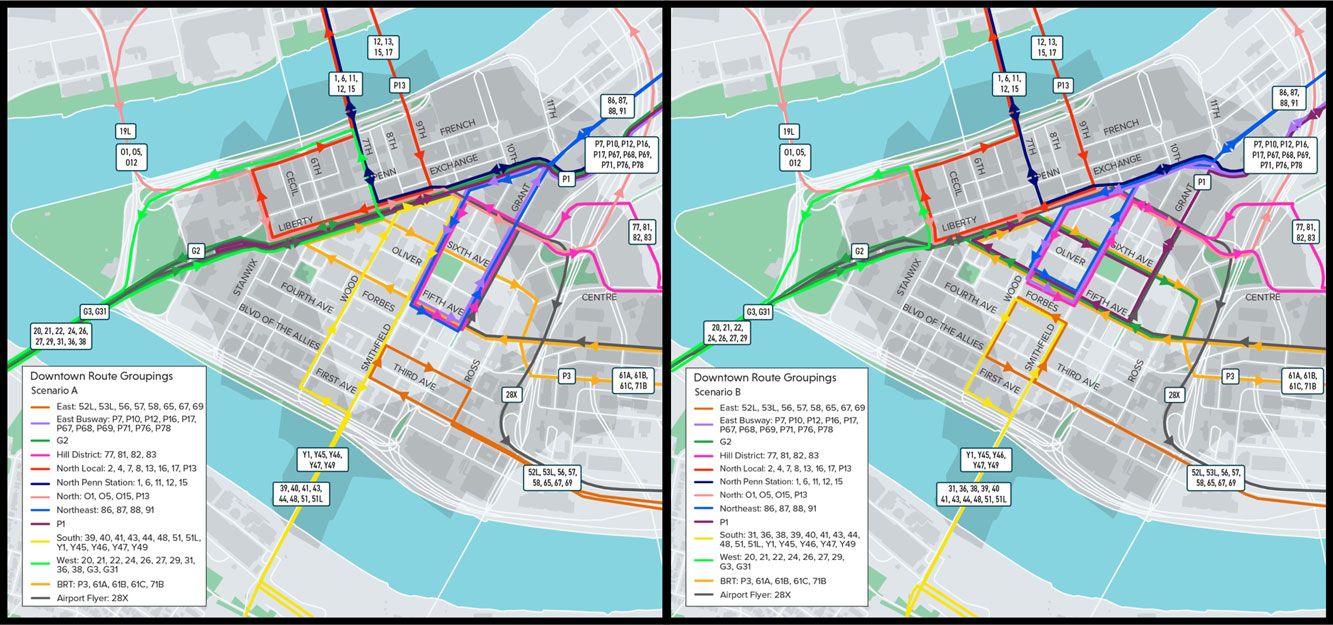
by Dan Yablonsky | Feb 28, 2023 | Uncategorized
image description: photo credit Pittsburgh Union Progress. Two maps of downtown with outlines for the two new proposed routing scenarios. Looks like a very complicated mess of colored lines. People should check out PRT’s website for accessible versions of this...







